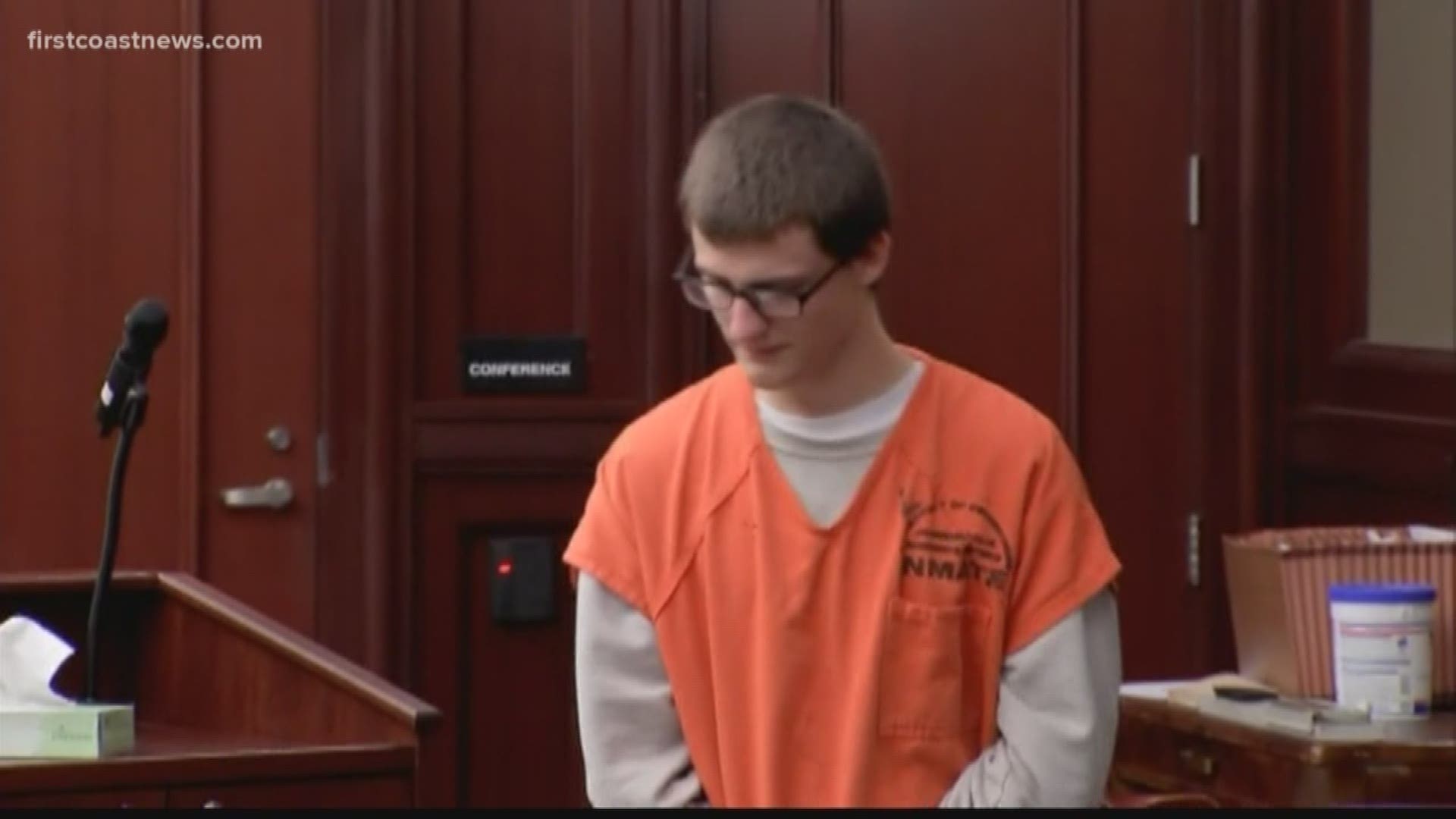JACKSONVILLE, Fla. — There is no question of guilt; only a matter of time.
Logan Mott’s confession to killing his grandmother Kristina French came with a plea deal that includes a negotiated range of 15 to 40 years in prison. It’s up to Circuit Judge Bruce Anderson to decide which end of the penalty spectrum suits.
His decision in a recent juvenile resentencing case may offer a clue. In September, Anderson released inmate Jackie Cogdell from prison after 39 years. His order relied on a number of factors, including extensive testimony about Cogdell’s rehabilitation and the tacit consent of the victim’s mother.
But he also relied heavily on the emerging science of juvenile brain development – as codified by the U.S. Supreme Court.
“Youth is more than a chronological fact,” Anderson began his order, each sentence lifted directly from Supreme Court case law on juveniles. “It is a time of immaturity, irresponsibility, impetuousness and recklessness. It is a moment and condition of life when a person may be most susceptible to influence and psychological damage. And its signature qualities are all transient. Because of the unique transitory characteristics that teenagers display, teenagers are constitutionally different from adults for purposes of sentencing.”
The case of Logan Mott, who was 15 years old at the time of the crime, is a present-day test of that perspective.
Prosecutor Joe Licandro urged the judge to impose the full 40 years, saying the savage nature of the crime demanded it. “This was a violent death, this was a terrible death,” he said.
Mott shot his grandmother then stabbed her repeatedly – including three times in the head. He wrapped her in plastic, buried her in his father’s backyard, cleaned the crime scene thoroughly and fled, only to be caught crossing the Canadian border.
One state witness, psychologist William Meadows, called the crime “sadistic.”
But Mott’s public defenders argued the teen deserves leniency. They say the crime emerged from a toxic stew of factors – his parents’ bitter divorce, a traumatic breakup with his girlfriend, his struggle to control his Type 1 diabetes and a serious alcohol problem.
Mott himself expressed remorse. In a letter he read to the judge at the final sentencing hearing, he called his grandmother “my friend, a mentor, my refuge.”
“This is entirely my fault," he told the judge. "And even though I don’t understand why I did this, I will never be more ashamed and sorry for what I’ve done.”
Judge Anderson questioned witnesses and lawyers at length about the issue of juvenile brain development and impulsive behavior.
“I don’t think anyone can argue with the concept of a developing brain, because those are findings that were made by the U.S. Supreme Court,” he told Licandro. “Not by this court or any other trial court -- those are things the U.S. Supreme Court has found, and we have to follow.”
Cogdell’s attorney Teri Sopp, who called Anderson’s order in the Cogdell case “one of the most powerfully written orders I’ve ever seen,” said it shows the judge’s understanding of the unique nature of juvenile cases.
“He gets it,” she said.
Of course, the case and its circumstances are different, but the law – and the judge -- are the same.
Logan Mott’s sentencing is set for Dec. 19.

